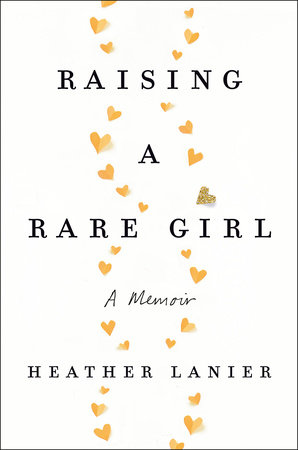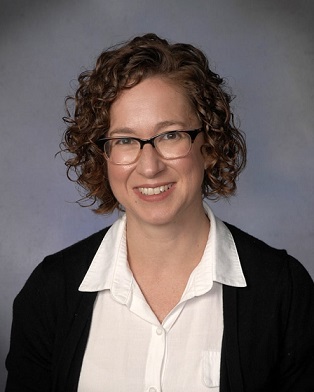Writing Arts Professor Lanier writes celebrated memoir about motherhood
Writing Arts Professor Lanier writes celebrated memoir about motherhood

From online magazine Slate to The New York Times, Assistant Professor Heather Lanier is getting great reviews for her memoir, Raising a Rare Girl.
Lanier not only is, in fact, raising a rare girl, but has written a rare book.
The memoir about her daughter, Fiona, is a deeply personal account that details the struggles and joys of parenting a child with a very rare condition, Wolf-Hirschhorn syndrome, but also lays bare some of the beyond hurtful experiences that she and other parents of Wolf-Hirschhorn children experience.
Lanier, who detailed some of her experiences during a 2017 TED talk that has had more than 2.5 million views to date, said following Fiona’s birth, when she weighed just four pounds, 12 ounces, her doctor noted the low birth weight, then opined the reason: “either bad seed or bad soil.”
“Then there was the doctor, later on when she was about three, who just spontaneously started pontificating (apropos of nothing) about whether parents of disabled kids had the right to consider euthanasia,” she said.
This attitude, it seemed, was not rare.
“Among my fellow Wolf-Hirschhorn syndrome parents, I’ve heard horror stories,” she writes in the book.
Write from the heart
A faculty member within Rowan’s writing arts program in the Ric Edelman College of Communication & Creative Arts, Lanier teaches her students to write from and about their experiences; to use pain – and joy – as motivation; and to be honest, with themselves and their readers. And clearly that is what she’s done with Raising a Rare Girl.
Released July 7 by Penguin Press, promotional copy on her publisher’s site begins to describe Lanier’s experience, from eating organic and “trying to do everything right” during her pregnancy to the shattering diagnosis shortly before delivery that not only would she not have a “Super Baby” but that her daughter might not reach her second birthday.
“In writing the book mostly I’m trying to write a good story,” Lanier said. “But I am trying to address the pressure of what a child should do and when.”
And she found that the clinical, detached nature of some physicians and therapists can miss a person for who he or she is.
“It turned out my baby girl loved reggae,” she told audience members during the TED talk. “And her onyx eyes eventually turned the most stunning Lake Tahoe blue” from which “she loved to gaze intently into other people’s eyes.”
Her book about Fiona, now eight, began as a blog, Star In Her Eye, simply an outlet for her experience when Fiona was about one year old that sometimes drew as many as 200,000 readers.
“I wanted to reach those tired parents scrolling on the internet at 2 a.m., seeking a connection,” she said.
Reviewing Raising a Rare Girl in The New York Times, Kate Braestrup declared that, “Lanier’s writing is clean and beautiful.” On August 13, the Times followed up the review by naming the book one of ten “NY Times Editor’s Choice Picks” for the week.
Slate’s reviewer called Raising a Rare Girl “a remarkable book...as I read it, I found myself thinking that all expectant and new parents should read it.”
Lanier, who previously penned two award-winning poetry chapbooks, Heart-Shaped Bed in Hiroshima and The Story You Tell Yourself, said she’s gratified for the nice things others have written about her work but believes reviewers and readers are ultimately reacting to her memoir because it rings true.
“I tell students that the best work often comes from where you feel a little raw,” she said. “The best writing often comes from a place of deep vulnerability. That’s a lesson in every creative writing class I teach.”